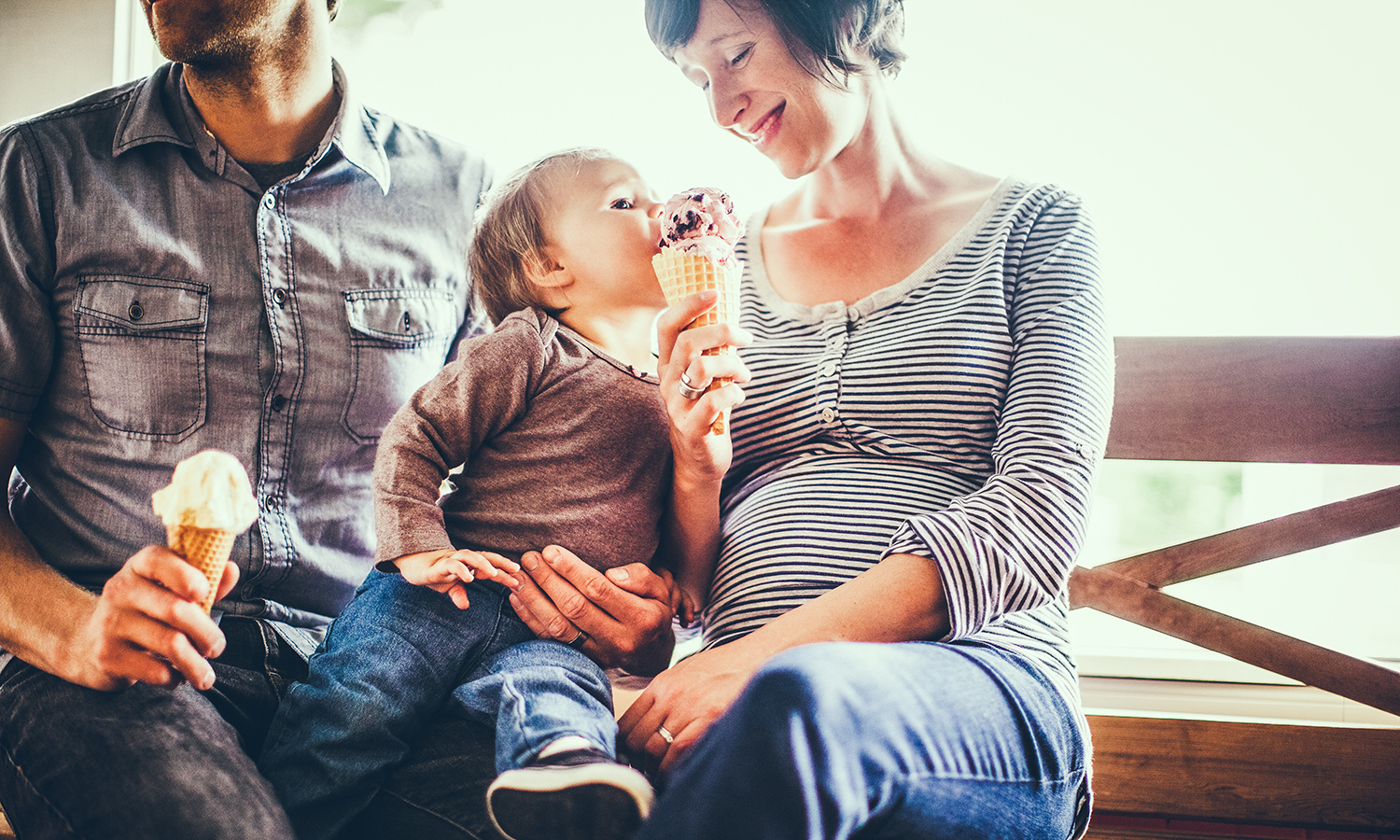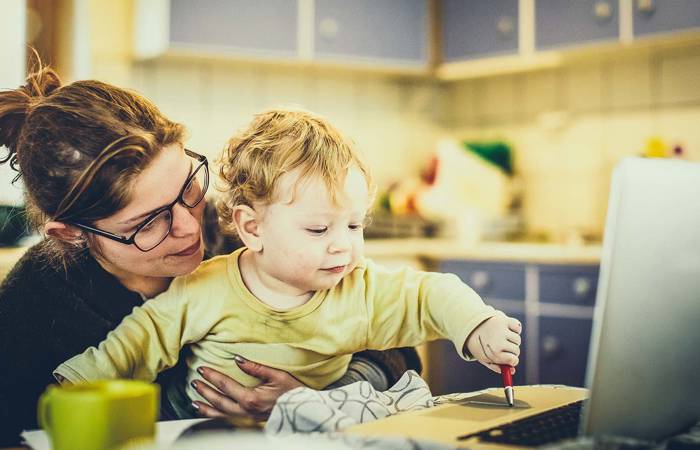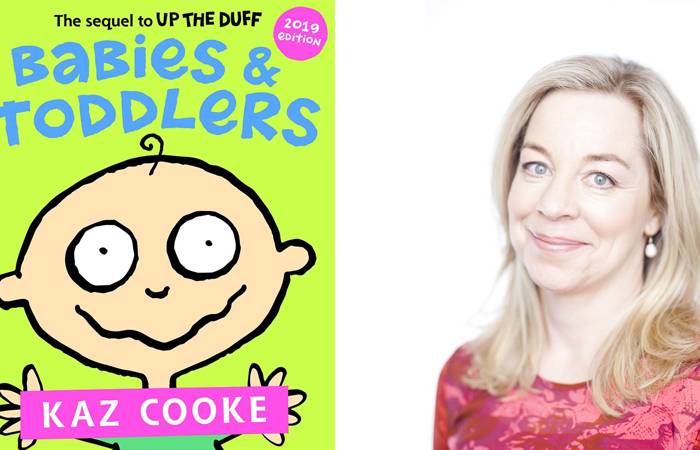Like what you see?
Sign up to receive more free parenting advice.
Thank you for subscribing to our newsletter!
Lifestyle

Credit: iStock.com/RyanJLane
Expectant parents are often warned about how life will change when a baby is born.
They are warned of the lack of sleep.
The sudden decrease in a social life.
The change in their identity.
But vary rarely are they warned about the impact their bundle of joy may have on their relationship.
Being aware of the stresses and how to recognise them, learning to be flexible and resilient and knowing when and where to seek support, can all work to strengthen and stabilise relationships.
“Having a child is one of the most significant milestones for a couple and signifies that the couple are beginning to start a family,” says Matt Garrett, Couple & Family Counsellor and Manager Hunter Relationships Australia NSW.
“Symbolically a child or children represent the ‘union’ between the couple.
“Having said that, undoubtedly having a baby, particularly a first baby, has a significant impact on the couple’s relationship.”
When are children the most stressful on a marriage?
“When you go from a couple to having a baby, that is a very big change,” says Anne Hollonds, Director of the Australian Family Institute of Studies and an experienced psychologist.
“While there are many happy things about it, it can be very challenging.
“In some cases, it can be catastrophic on the relationship.
“It requires significant realignment of the relationship between the two adults and how they relate to each other, to incorporate all the demands of this new baby.
“You think going through the birth is tough, that is nothing compared to the next five or more years and the potential negative effects on your relationship.”
In a 2009 study, researchers surveyed 218 couples over the first eight years of their marriage.
They found that, “the transition to parenthood has a significant impact on marital functioning”.
“For the average couple, these effects were negative, small to medium in magnitude, and consistent across a number of relationship domains.
“Moreover, these effects tended to be sudden and persist over time.”
Matt explains that with the birth of the first child, “it is not uncommon for the couple to feel discombobulated”.
“Intimacy and closeness are less easy to find, and the couple’s sex life is also likely to be disrupted.
“Socialising together is often difficult and the emotional roller coaster that so often accompanies having a baby can reveal sides of the couple that neither of them thought were there.
“It is a huge transformative moment in the life of a couple.”
Anne agrees and says that many hurt feelings, misunderstandings and disagreements can be shoved under the carpet to be dealt with later as the couple tries to simply get through the day on little sleep.
“Because the issues aren’t dealt with, they can re-emerge later as more serious problems, sometimes terminal to the relationship,” she says.
In a complex and increasingly busy world, where the expectations of men and women and couples in a marriage or partnership are less prescribed, it will be important to heed the warning signs of a relationship that is beginning to struggle.Matt Garrett
Stay up to date with the latest news and articles from First Five Years
Thank you for subscribing to our newsletter!
Even though having a baby can be stressful on a relationship, the good news is that divorce statistics suggest that parents are working through those early years.
“The marriage and divorce statistics show that the length of a marriage is starting to get longer than ever before,” says Anne.
Anne explains that with the increasing knowledge of the negative effects of divorce on children, parents are trying to make their marriage work.
“Research has shown that divorce really disrupts children and even adults, and you can spend many years recovering from the impacts of a divorce,” she says.
“So, we are not as likely to move to separation or divorce when we have children than previous decades, especially in those early years of having children, but that is often when the damage is done.
“When you are not facing up to the issues because you are just trying to get through the day, then you might run into trouble later on.”
Does it get easier?
Anne explains that the shift and change in responsibilities when the baby comes along can build a lot of resentment for the primary care giver, most often the mother.
“The mental load is definitely greater on the mother,” says Anne, describing the burden of remembering and then executing tasks required to care for the children and run a household.
“Of course, there have been changes to men’s roles, but the load is definitely still more on the mother.
“Before the baby, it is usually an equal share of responsibilities between the couple, but after the birth, that changes and so much resentment can build from that.”
The Australian Institute of Family Studies has recently published a report which shows the statistical trends in fathers’ employment, for couple and single fathers over recent decades.
Within the report, they show a graph1 which demonstrates the mother's and father's time use up to and after the birth of the first child regarding employment, parenting/childcare and household work. Needless to say, the graph speaks volumes about the change in responsibilities for the mother after the birth of a child.
Matt adds that the primary care giver can feel quite isolated from their usual social events while having the physical and emotional strain of raising a child.
He also explains that the non-primary care giver, usually the father, can also experience hurt as the relationship dynamics change.
“The non-primary care giver is likely to experience feeling displaced and their needs will often come secondary to the baby and the primary carer,” he says.
“The displaced partner may also feel guilty about expressing their feelings of being neglected as this is rarely anticipated prior to the birth of the baby and runs counter to what is expected in having a child.”
As for it getting easier as the children get older, experts agree that it depends on the family’s circumstance.
Anne says that, “typically by the time the youngest is five, the mother is back at work, at least part time, and there is an enormous amount of juggling that goes on with that”.
Matt explains that once all the children are at school, “life can in fact become even busier, ferrying children to their various out of school events, managing the increasing complexities of their needs as they grow and develop, while incredibly rewarding is also likely to be taxing physically and emotionally for the couple”.
Anne recommends having strong foundations within the relationship to be able to review, discuss and negotiate how parents work together as a team to prevent resentment and problems from escalating.
How to get through it?
“Being able to be flexible and resilient will be the most important skills for the couple to move through this period,” recommends Matt.
Anne adds, “you need to be able to talk about the issues in a way that doesn’t lead to a cycle of blame and hostility – find a way to resolve your disagreements that strengthens your partnership not weakens it”.
Matt recommends couples have time together.
“Maintaining a time where the couple can be together exclusively will be important.”
He adds that, “couples should discover ways they can ensure their love and positive regard for each other can be communicated to each other”.
Anne adds that parents need to understand that their relationship is incredibly important, even though it can sometimes fall to the bottom of the to-do list.
[1] These estimates were derived from unit record data from the Household, Income and Labour Dynamics in Australia (HILDA) Survey. The HILDA Project was initiated and is funded by the Australian Government Department of Social Services (DSS) and is managed by the Melbourne Institute of Applied Economic and Social Research (Melbourne Institute). The findings and views reported in this paper are those of the author and should not be attributed to either DSS or the Melbourne Institute.






